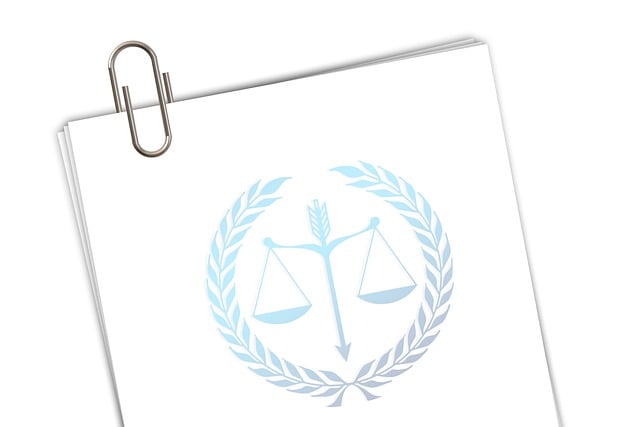Mail wire fraud, a prevalent digital crime involving deceptive money transfers, requires skilled legal defense strategies. In cases of drug possession, the legal framework is stringent, focusing on deterrence and punishment. Defense tactics include challenging evidence admissibility, questioning procedural integrity, and invoking constitutional rights to protect against wrongful accusations. Staying informed about fraud schemes and leveraging advanced tools, cybersecurity measures, and digital literacy are crucial for legal professionals to navigate these complex cases effectively, especially with the evolving nature of criminal tactics. Recent high-profile convictions showcase successful defenses employing innovative legal approaches, impacting not only drug prosecutions but also broader criminal defense strategies.
Mail wire fraud, particularly involving drug possession, is a growing concern in today’s digital age. This insidious crime leverages manipulated mail and wire communications to facilitate illegal substance transactions. Understanding these schemes and their legal implications is crucial for both victims and defense strategies. This article explores the definition and common tactics of mail wire frauds, delves into the legal framework surrounding them, offers insights on building effective defense strategies, and presents successful case studies showcasing the prosecution and prevention of such fraudulent activities, emphasizing key legal approaches for defending against drug possession allegations.
- Understanding Mail Wire Frauds: Definition and Common Schemes
- Legal Framework: Laws and Regulations Against Drug Possession Frauds
- Building a Defense Strategy: Challenges and Effective Countermeasures
- Case Studies: Success Stories in Prosecuting and Preventing Mail Wire Drug Possessions
Understanding Mail Wire Frauds: Definition and Common Schemes

Mail wire fraud is a sophisticated criminal activity that has become increasingly prevalent in today’s digital age. It involves using electronic communication methods to deceive individuals or entities into transferring money or sensitive information, often under false pretenses. This type of fraud can take various forms, such as phishing schemes, where scammers impersonate legitimate organizations to steal personal data, or more complex con games involving fraudulent wire transfers.
Understanding the mechanisms behind these scams is crucial for both victims and legal professionals. When dealing with mail wire fraud cases, particularly high-stakes ones involving white collar and economic crimes, a robust defense strategy is essential. Skilled attorneys can employ legal approaches to protect individuals accused of such offenses, focusing on evidence scrutiny, identifying procedural errors, and crafting compelling arguments to win challenging defense verdicts. By staying informed about common fraud schemes, the legal community can better equip itself to navigate these intricate cases.
Legal Framework: Laws and Regulations Against Drug Possession Frauds

The legal framework surrounding mail wire frauds, particularly those involving drug possession, is robust and multifaceted. Laws and regulations are designed to deter and punish individuals who attempt to exploit the postal system for illicit purposes. These provisions not only aim to protect the integrity of the mail but also ensure public safety by disrupting the supply chain of illegal substances. Legal approaches for defending against drug possession frauds vary, with a focus on challenging the admissibility of evidence, questioning the chain of custody, and asserting constitutional rights.
In many jurisdictions, a general criminal defense strategy may include arguing that the defendant was unaware of the contents of the mail or package, or that they did not intend to possess or distribute illegal drugs. During jury trials, defense attorneys play a crucial role in presenting these arguments, ensuring that the prosecution meets its burden of proof beyond a reasonable doubt. Understanding the respective business and legal requirements is essential for crafting an effective defense strategy, ultimately aiming to protect the rights of individuals accused of drug possession frauds while upholding the integrity of the justice system.
Building a Defense Strategy: Challenges and Effective Countermeasures

Building a robust defense strategy against mail wire fraud is a complex task given the evolving nature of cybercrime. One of the primary challenges is staying ahead of constantly changing tactics employed by perpetrators, who often exploit vulnerabilities in digital security systems. To counter this, legal professionals must adopt dynamic approaches that incorporate advanced technology and innovative legal tactics.
Effective countermeasures include leveraging sophisticated cybersecurity tools to detect anomalies in mail traffic, implementing stringent authentication protocols, and educating both individuals and organizations about potential risks. Additionally, collaborating with law enforcement agencies across the country has proven successful in disrupting fraudulent schemes. Legal professionals should also explore creative legal approaches, such as examining the admissibility of digital evidence and employing novel interpretations of existing laws, to build winning challenging defense verdicts in high-stakes cases.
Case Studies: Success Stories in Prosecuting and Preventing Mail Wire Drug Possessions

Mail wire fraud cases involving drug possession have seen notable developments through successful prosecutions and innovative legal approaches. These success stories highlight the importance of robust law enforcement strategies and effective defense mechanisms in combating such crimes. Law enforcement agencies have been proactive, utilizing advanced surveillance techniques and data analytics to identify and intercept illegal transactions, thereby disrupting well-organized criminal networks.
In recent years, several high-profile cases have resulted in significant convictions. These prosecutions often involve intricate legal maneuvers, with defendants employing strategic defenses. Legal approaches for defending against drug possession charges range from challenging the admissibility of evidence to presenting alibis and casting doubt on the reliability of informants. The outcome of these cases not only shapes the future of drug-related prosecutions but also offers insights into effective general criminal defense strategies, especially in white-collar and economic crimes, sometimes even reaching jury trials.
Mail wire fraud, particularly in the context of drug possession, poses significant challenges due to its intricate nature. However, understanding these schemes and employing robust legal approaches for defending against them are key to mitigating risks and ensuring justice. By leveraging the discussed strategies, including a comprehensive defense strategy, legal professionals can effectively navigate these cases, protect individuals’ rights, and contribute to the prevention of drug-related mail wire frauds in today’s digital landscape.






